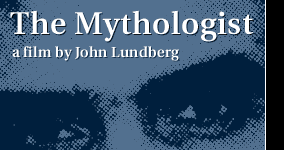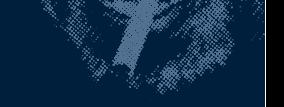


< BACK | NEXT > Page 1 of 3
THE HENRY X FILE
Émigré, diplomat, adventurer, orchid-smuggler, crop circle researcher, UFO investigator, phone pest, Man-In-Black... was this the secret life of a Nottingham shop assistant? Robert Irving - who both appears in The Mythologist and was the chief consultant to the project - presents a study in persecution and panache.
Feeling monopolized by the telephone company? Spare a thought for one Nottingham resident. For five years he suffered the clicks and beeps of uninvited listeners. His bills - averaging £3,000-4,000 annually - seemed high for a residential line. Outside his house he caught unqualified engineers red-handedly tinkering with his junction box. They drove grey, unmarked vans.

Sometimes these men paid visits to his home, attempting entry with a quick flash of bogus ID, or waiting until the house was empty. Eight break-ins were reported in as many months. They stole documents, frightened his kids, inserted tiny listening devices into wall sockets, and repeatedly tampered with the brake-line on the family car. Throughout all this, his relationship with British Telecom, America's National Security Agency, CIA, MI5 and the British police, progressively worsened.
Matters came to a head in early 1995 at Nottingham's magistrates court. Outside the soot-soiled Guildhall, two men in dark anoraks merge with the scenery, camera's bulging their pockets. Across the street, smartly-dressed reporters from the local Evening Post set out to cover their beat, oblivious to the story unfolding before them. A stream of other dark dressers - magistrates, lawyers, articled clerks, etc - enter the building. In contrast, Habib Azadehdel arrives wearing a pale reflective raincoat which lights up like a strobe as he makes his dash for the door.
At first glance, Azadehdel's file tells of a bridged void between persecution and opportunity: His boyhood flight from then-Soviet Armenia to the apparent sanctuary of Iran; his schooling in the United States, and further education in Paris; of his early twenties, when the Iranian government wisely capitalised their multilingual asset, recruiting him as a diplomatic 'fixer' to the South Korean embassy in Tehran. In 1979, as the Shah slipped into exile, so Habib and his brother Bazil joined an exodus of middle-class non-Shiites to Britain. They became citizens, and while Bazil opened his first grocer's shop in Nottingham, Habib bought a house there, changed his name to Henry and tried to settle down to the comparative serenity of east-Midlands life, ostensibly selling life insurance.
Ostensibly, because, as careers go, the route from international diplomat to insurance salesman to notorious smuggler to renowned flying saucer investigator seems as implausible as it was precarious. 'Henry' was the first of several noms de guerre. 'Julian Philips', for instance - doubtless inspired by the arrival of his first son, Julleane Philippe - or 'Mr Scanlon', 'Dr Allan Jones', and 'Cassava N'tumba'. When Henry finally settled for the playful 'Dr Armen Victorian', few of his compatriots seemed to notice.
We first catch sight of Henry Azadehdel at the Old Bailey in 1989, where his conviction for orchid-smuggling exposes skills eminently suited to the intrigue of the UFO business. Who can really say at what point a smuggler who does a little alien abductee research on the side becomes an abductee researcher who does a little smuggling on the side?
"Henry had an amazing alacrity to lie in tight situations," an intelligence-gatherer for Her Majesty's Customs and Excise told me as he pulled out a copy of Henry's little black book, with its names and addresses of known orchid dealers. Underneath each name was a date and a list of exotic plant names. Beside each entry, a figure - say, 3000 - with a dollar sign preceding it, followed by the letters 'DLVD'.
To his investigators, this was clearly short for 'DELIVERED'. To Henry it was an acronym for the instruction 'Diluted Lime Various Doses'; the dollar sign merely a coded reminder to apply it. Most of the people listed in the book, mainly buyers from the US, were interviewed by Customs officials in a year-long investigation; nevertheless, no one, not even the experts consulted, was ever able to throw any light upon Azadehdel's lime remedy.
In what must be the boldest plea of mitigation by extenuating circumstances ever uttered at the Old Bailey, Azadehdel told the court: "I have been shipwrecked, subjected to disease, chased by drugs traffickers, and fed by the chief of a clan of head-hunters. I've been to places where no white man has ever been. I'm proud to have extended the boundaries of science."
While Henry portrayed himself as an audacious adventurer, to others he was the ubiquitous Man-in-Black. Stories circulated of his appearances; strolling through a Tokyo hotel lobby, for instance, just as he was spotted - like Oswald - leaving an embassy in Mexico. Rumours associated Henry with the deadly trade in Red Mercury, or the 'missing' Alternative 3 tapes, or parrots. He was twice reported seen in the back of a Soviet embassy limousine in Ottawa. As far as the three appeal court judges were concerned, however, Azadehdel all the while sold cans of pop behind the counter of his brother's suburban mini-mart. If they considered any of these stories a shade bogus, it was bogusity shaded with bold panache.
While most of the media attention around Azadehdel's trial in 1989 centred on his activities with rare orchids - his téte-a-téte with the Telegraph's Ronald Payne, for instance, who found him 'cross and unrepentant' and surrounded by 'enemies', quoting his assertion of being "crucified in a vendetta motivated by jealousy"; a cover story in the New Scientist which discussed the botanical ramifications; and a six-page feature in the Independent magazine, 'Raiders of the Lost Orchids', showing Henry posing from behind his exquisite, ill-gotten, but duly credited discovery: the slipper orchid Paphiopedilum henryanum - it was naturally left to The Sun to uncover the unique angle to the story: the secret behind Henry's secret life.
Tipped off by rival UFO researchers, who generously donated their pieces of silver to Greenpeace, the newspaper revealed how Azadehdel had negotiated the sale of stolen classified documents with a young South African Air Force Intelligence officer. Anxiety amongst the journalists was understandable as Henry announced that the documents were said to include details of the shoot-down and retrieval of an extraterrestrial flying disc in the Kalahari desert: "This is the most important revelation in Britain for the last 40 years," he told them.
Others were less convinced. Among the least likely of Henry's 'enemies' were Tim Good, author of Above Top Secret, and Graham Birdsall, editor of UFO magazine. While both may have been inclined to accept the saucer story, they were rightly sceptical of the intelligence officer's credentials, more so after discovering he was barely out of his teens and had left a trail of debts while foraging through American UFO book shops.
Henry's influence regarding the so-called 'Kalahari incident' remains embedded in UFO folklore. With the circulation of bogus alien photographs, a lively trade in anonymous letters, spurious allegations and threat-laden telephone messages, the chapter serves as a warning to those looking for answers in the latest Roswell debacle.
Around that time, Tony Dodd - a former police sergeant, now Director of Investigations with Quest, a Leeds-based UFO group - reported being tailed around his home town of Grassington and across Europe as he traveled the lecture circuit. At one of his conferences, Dodd met an "intelligence source" - American ufologist Wendelle Stevens - and became convinced that the Paris branch of the South African Security Service had been contracted to liquidate the former policeman and his Armenian co-investigator. Generally, it's rule one for ufologists: 'a little persecution lends much cachet to one's work'.
As they voiced the concerns of an increasingly sceptical UFO community, Good and Birdsall began to receive a stream of angry correspondence, not all anonymous but mostly litigious in tone. One, signed simply 'J Brown', warned Good of his imminent exposure as a CIA informant with alleged connections to a shadowy group known as the Aviary. Others were more explicit, offering to curb legal action in return for Good's public apology: "I have seeked the protection of the law where these type of faul language and insults are involved," wrote Azadehdel greyly. "I have employed both firms (of solicitors) to do their best," concluded the letter, "since finance is absolutely no objection on my part, to see this case through as professionally as possible."
Tim Good had reasons to be concerned. For one, most newspapers had reported that Henry had earned vast amounts of money from his smuggling activities, a fraction of which he was fined - so he could well have had cash to burn in the all-consuming fire of legal action. These were particularly litigious times for ufologists - Jenny Randles having just paid out her life-savings in a similarly promiscuous action.
In the end, however, Tim Good rightly ignored the letters, and no writ was forthcoming. Perhaps reluctant to reject a flavoursome spy theme, Graham Birdsall wondered whether Henry's approach was actually subtler than was immediately apparent from his letters. He wrote to Good in 1991 that he believed Henry was capable of behaviour that FT's lawyers have advised me not to repeat in public. Birdsall also wrote that Henry "appears a master at 'turning' others. The art of the intelligence officer ... retired or still serving?"
A year later - at the 1992 UFO Conference in Leeds - Birdsall had, curiously, changed his tune. "In my 25 years of investigation," began his lengthy introduction, "I have never known so much good information come from one individual." Had he himself been 'turned'?
Introduced as Armen Victorian, Azadehdel stepped up to the lectern, providing those present with their first glimpse of this most untypical of ufologists. Not for him the rites of chilly hilltop sky-watches - no significant epiphany, or gleaming descriptions of personal sightings - for, while those visionaries look for answers in the heavens, Henry was glancing suspiciously sideways. The message was dark and delivered with the cool, didactic authority of an ex-diplomat. That very morning, The Guardian had described the day's agenda.
"Calling Penguin, Falcon and the Owl; stand by to be reassigned to other duties... You are about to be unmasked in front of 400 ufologists... The audience will hear taped conversations of the gang of international debunkers, a group code-named 'The Aviary' - revealing the role they have played in giving ufology, etc., a bad name... "They have helped brand us a load of idiots," complained Tony Dodd, the conference organizer. The tapes were gathered by Armen Victorian, a Nottingham-based former diplomat, whom the Aviary allegedly tried in vain to recruit."
< BACK | NEXT >
^ TOP